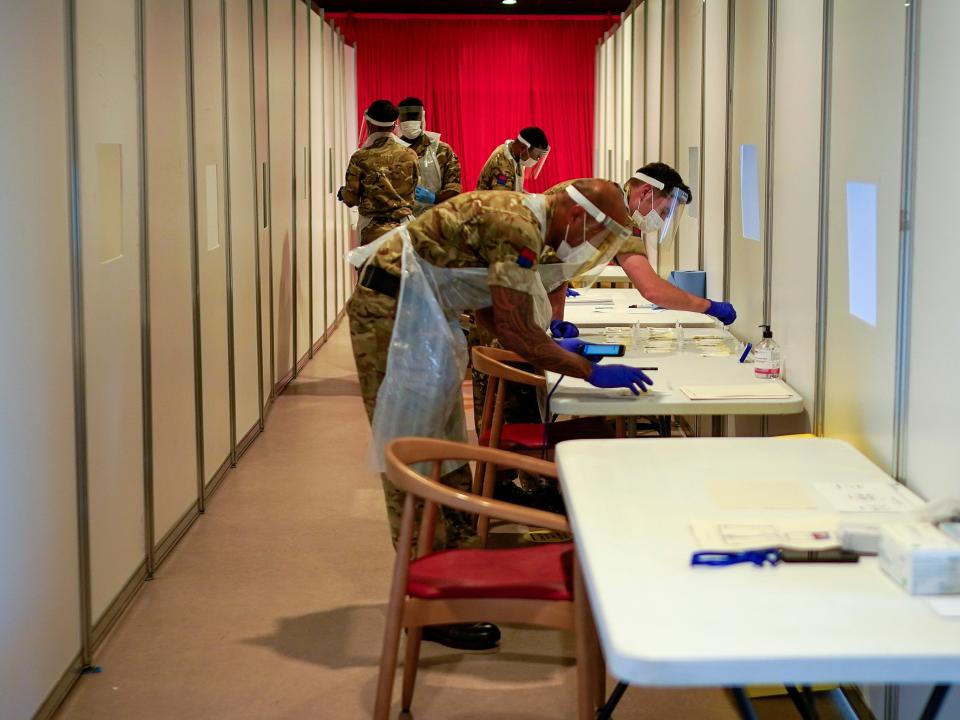Coronavirus: Liverpool mass testing may be ‘missed opportunity’ as thousands in poorer areas decline to take part

Mass testing in Liverpool will be a missed opportunity to minimise coronavirus in the region if more is not done to convince the less well-off to take part, one of the city’s most senior doctors has said.
Dr Rob Barnett, secretary with the Liverpool Medical Committee, made his warning as it was revealed that in some of the most deprived neighbourhoods just four per cent of people have come forward to be screened.
The fear of the lost income caused by being ordered to self-isolate if found positive is believed to be behind much of the reluctance.
"If we can't get more people tested, if it is only the worried well in affluent areas, then actually we won't do what's needed to get the city out of the mess it's in,” Dr Barnett told the BBC.
He said more needed to be done to get people living in places such as Norris Green and Croxeth to test – including addressing concerns about what he called the “devastating” potential financial consequences of having to self-isolate.
"I understand there are various support mechanisms, but that never replaces the income that you will have had if you'd been at work,” the GP added.
The vast pilot testing scheme was launched in Liverpool on 6 November with the aim of driving infection rates down by identifying cases early in asymptomatic people.
Dozens of testing points have been created across the city – including in community centres, schools and university sites, council building and Liverpool’s Anfield stadium – with the help of some 2,000 soldiers.
So far, more than 200,000 people have been tested with some 800 positive cases detected in people who were showing no symptoms, the city council has said.
But while both local and government officials are keen to proclaim the scheme is working well – infection rates have been reduced from a high of just below 700 cases per 100,000 people in late September to 174.3 this week – Dr Barnett said the whole scheme would be a “missed opportunity” if growing concerns relating to less well-off areas were not addressed.
He said: "There is no doubt if you compare the figures to the figures three to four weeks ago, Liverpool is in a much better place.
"But the figures are ... still too high. We've got too many people in hospital.”
Dan Carden, Labour MP for Liverpool Walton, agreed with the assessment, saying rules for the government’s self-isolation grant – a one-off payment of £500 – were too tough.
Writing on Twitter, he said: “Testing and tracing will only work if people can afford to self-isolate.
“The government’s criteria for the self-isolation support grant is so strict that 80 per cent of applicants for the mandatory scheme in Liverpool are refused.
"People shouldn't be forced to choose between doing the right thing and putting food on the table.”
It is not the first time the scheme has caused concerns.
Scientists have previously told The Independent they were worried that such mass testing could do more harm than good because the tests themselves often failed to identify Covid-19 – potentially leading to millions spent and much energy expended on a system that was fundamentally flawed from the start.
The Department of Health and Social Care has been contacted for a comment.
Read More
Liverpool’s mass Covid testing pilot could offer glimpse of future
Mass Covid testing scheme in Liverpool could be flawed, experts warn

 Yahoo Finance
Yahoo Finance 